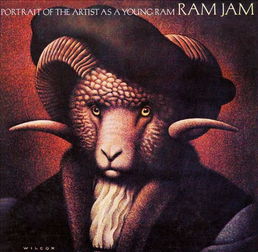Content:
As a daily angler, the thrill of reeling in a majestic river perch can be an addiction. These fish are not only a delight to catch but also a culinary delight. Whether you're a seasoned angler or a beginner looking to improve your skills, mastering the art of catching river perch can elevate your fishing experience. In this article, we'll delve into the essential tips and techniques that will help you become a proficient river perch angler.
Understanding River Perch Behavior
Before you cast your line, it's crucial to understand the behavior of river perch. These fish are often found in shallow, weedy areas where they can hide from predators and feed on small insects, crustaceans, and fish. They are known for their voracious appetites and can be caught year-round, although the best times are during the spring and fall when they are most active.
Choosing the Right Equipment
To successfully catch river perch, you'll need the right equipment. Here's what you should consider:
Rod and Reel: A medium-action rod with a light to medium power is ideal for river perch. The rod should be around 6 to 7 feet long to provide enough leverage for casting and playing fish. A spinning reel is a popular choice for perch fishing due to its ease of use and sensitivity.
Line: Use a monofilament line with a breaking strength of 4 to 6 pounds. This line is strong enough to handle perch but light enough to be sensitive to the fish's movements.
Hooks: Perch are known for their sharp teeth, so using a size 6 to 10 hook is recommended. A straight shank hook works well for these fish.
Lures and Baits: Live bait like worms, leeches, and minnows are highly effective for perch. Artificial lures such as spinners, jigs, and small crankbaits can also be productive, especially during the warmer months.
Techniques for Success
Now that you have the right equipment, it's time to put some techniques into play:

Locate the Perch: Start by looking for areas with a mix of weeds and open water. Perch often school in these areas, so if you find one, there's a good chance there are more nearby.
Cast and Retrieve: Cast your lure or bait out and retrieve it in a slow, erratic motion. Perch are often bottom feeders, so let your lure or bait sink to the bottom before you start retrieving it. Vary your retrieve speed and cadence to see what works best.
Use Live Bait: If you're using live bait, such as worms or minnows, hook them through the middle so they can swim naturally. Be sure to keep the bait alive and wriggling to attract perch.
Artificial Lures: When using artificial lures, mimic the natural movements of prey. Jerk the lure in short, sharp bursts to mimic the struggles of a struggling fish or a fleeing prey.
Be Patient: Perch can be picky, so don't get discouraged if you don't catch one right away. Be patient and adjust your techniques as needed.
Seasonal Considerations
River perch behavior can vary with the seasons, so here are some tips for each season:
- Spring: As water temperatures rise, perch move into shallow, weedy areas to spawn. This is a great time to fish near weed beds and rocky structures.
- Summer: Perch may move deeper into the water column to escape the heat. Look for them in deeper holes or along the edges of drop-offs.
- Fall: As water temperatures cool, perch become more active and can be found in a variety of locations. They often move into areas with a mix of weeds and open water.
- Winter: Perch are less active during the winter, but they can still be caught. Look for them in deeper water or near structures where the water is warmer.
Conclusion
Catching river perch can be a rewarding and enjoyable experience for any angler. By understanding their behavior, choosing the right equipment, and employing effective techniques, you'll be well on your way to becoming a proficient river perch angler. Remember to always practice catch-and-release fishing when possible to preserve these magnificent fish for future generations to enjoy. Happy fishing!












